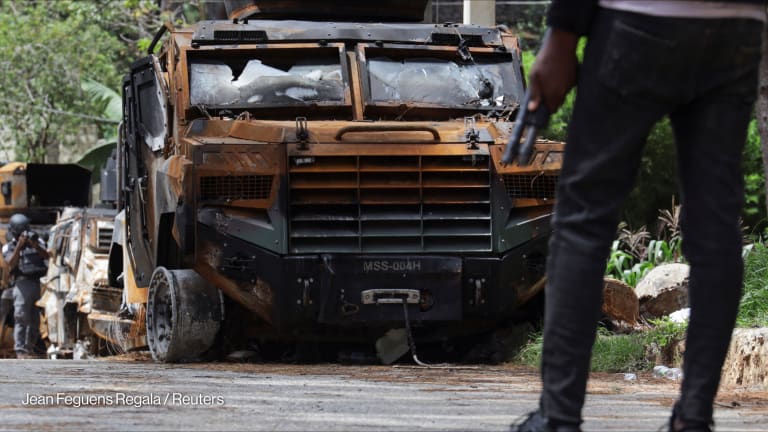A monthslong campaign by Haiti’s leadership and the United Nations to persuade the United States, Canada, or any other regional power to lead an international force to quell a coalition of street gangs has largely run aground, fueling fears that the country could spiral deeper into chaos, according to U.N.-based diplomats.
“Nothing is moving in the council; no one has the appetite for putting troops or police in harm’s way,” one senior security council diplomat told Devex. “There is a Haiti fatigue; that is why everyone is so hesitant.”
The stalled peacekeeping push comes more than four months after the Biden administration delivered an urgent appeal to the U.N. Security Council to impose a raft of sanctions on Haiti’s gangs, and stand up an “international security assistance mission to help improve the security situation and enable the flow of desperately needed humanitarian aid.”








